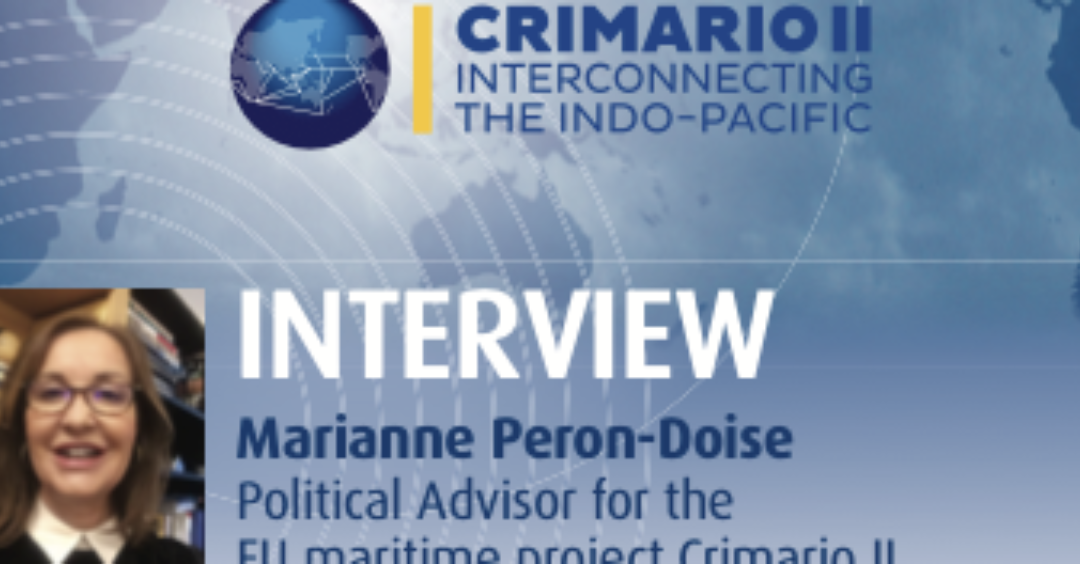What are today the greatest common challenges in maritime security?
By far the most problematic source of maritime insecurity for States is the phenomenon of obstacles to the freedom of the seas. I would add that the most commonly cited risks and threats at sea, such as piracy, unreported and unregulated illegal fishing (IUU), maritime terrorism and other criminal activities, are only the by-products of this fundamental issue, which is for states to be able to control their maritime domain but also to ensure free navigation on the seas.
Maritime flows and trade lie at the heart of globalisation. However, maritime transport and ports account for 90% of the goods exchanged and we should see an intensification of trade on the seas with the consequences that this implies in the security field. This maritimisation of trade and the weight of the Indo-Pacific have given new importance to the geopolitics of the seas and oceans.
In your opinion, how can the European Union enhance maritime security in the Indo Pacific region?
I think the protection of the maritime domain of States and the control of navigation in strategic areas have become priorities for a large number of countries in the Indo-Pacific. This is leading to new sources of tension and maritime insecurity and the search for innovative tools to facilitate better maritime domain awareness and regional cooperation to improve the exchange of maritime information.
This is an area where the EU can contribute a lot. The EU does not have a navy and its partners do not expect it to be in a combat role. building capacity, strengthening maritime information sharing is what the region needs.
How can coastal states guarantee safe and secure sea lines in the Indo Pacific?
The sea is a dangerous place that you cannot face alone. Cooperation is a necessity for user states. There are many examples of this. The establishment of co-ordinated patrols in the Malacca Strait in South East Asia, the development of the Djibouti Code of Conduct in the Indian Ocean or the decision to establish a regional fusion centre, the Pacific Fusion Centre in Vanuatu in the South Pacific.
With these initiatives, coastal states not only help to develop a maritime safety regime but also participate in the creation of a maritime community.
How can IORIS and SHARE.IT support national and regional cooperation?
IORIS is a maritime information exchange and coordination platform, SHARE.IT is a technical framework to facilitate the flow of information between fusion centres and information sharing centres. I think these are concepts easy to understand, fairly transparent and easy to implement concepts.
These characteristics make them suitable vehicles for developing maritime cooperation at both national and regional levels.
Marianne is associated Research Fellow at the French Institute for International and Strategic Relations (IRIS, Paris). Her research interests include Indo Pacific geopolitical issues with a specific expertise on security and defense policies in Northeast Asia (Japan-Korean Peninsula), maritime security topics. She also teaches classes in Maritime Security at Sciences-po Paris and the Lille Catholic University.
She is Political Advisor for the EU maritime project CRIMARIO since 2015.

